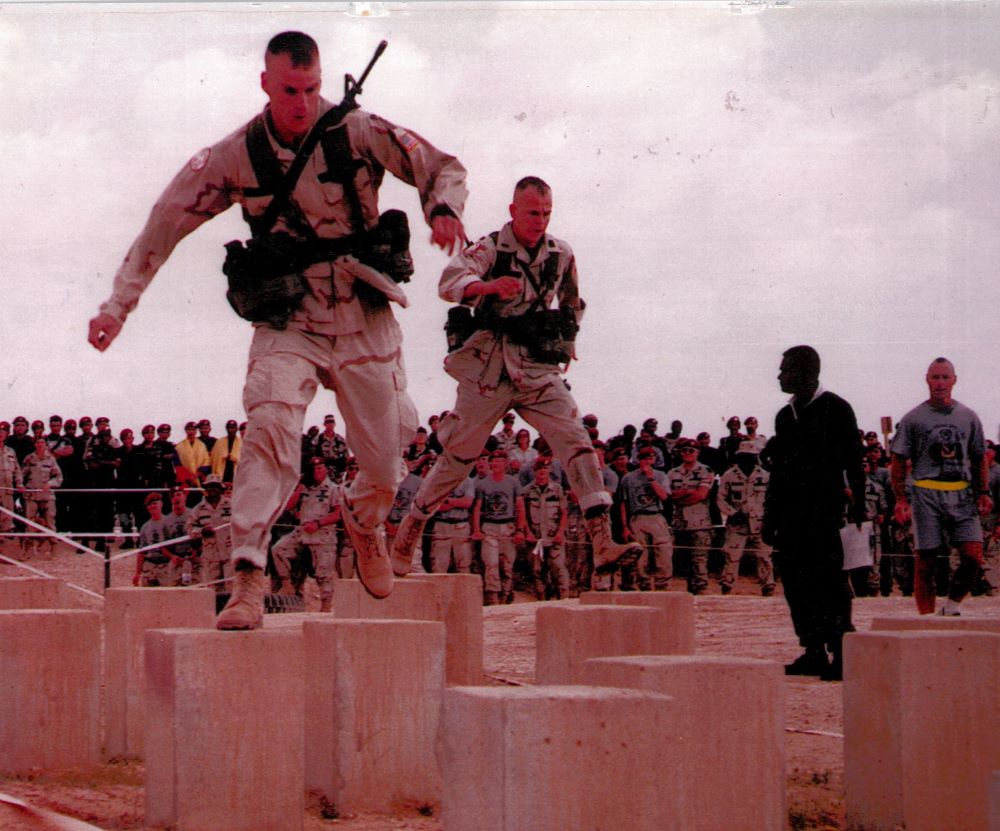Though he no longer wears the uniform, the pride and honor it symbolizes remain unwavering for trial attorney Douglas Saeltzer. The saying “Once a soldier, always a soldier” perfectly captures how his military experience has shaped his character.
A highly decorated Army veteran, today Saeltzer is a shareholder and powerhouse plaintiff’s lawyer at San Francisco law firm Walkup Melodia Kelly + Schoenberger. Specializing in representing individuals who have suffered serious injuries, he applies the lessons accrued in the military to hold powerful entities accountable for the harm they’ve caused.
After graduating from the University of California Hastings College of Law, Saeltzer accepted a direct commission into the U.S. Army Judge Advocate General Corps (JAG). This fulfilled a long-standing desire to serve his country.
“I wanted to serve, and it gave me an opportunity to do that while I gained experience. I liked the military structure and wanted to avail myself of the discipline and leadership training,” he says. “It really had a lot to offer. The military is a great place for any young person. It gives you a lot of experience and offers opportunities to mature. It’s no different for those seeking a legal career. It’s the only client I know of to give a 25- or 26-year-old the opportunity and responsibility to try cases.”
Serving as a prosecutor, Saeltzer honed his skills in and out of the courtroom, developing his own style and methods.
“Every case was directly translatable to civilian trial,” he says. “There’s no different burden of proof, and really the rules of evidence are virtually identical.
“The most unique military case I tried was what is called a jump refusal, where a soldier refused to jump from the plane,” Saeltzer says. “If you’re in an airborne unit of the Army and are ordered to jump out of the plane, it is a crime if you don’t follow that order.”

His work did not go unrecognized and Saeltzer quickly rose up the ranks. Within one year, he climbed to the position of senior trial counsel. A pivotal member of the Army JAG Corp from 1995 to 1998, Saeltzer was assigned to the 82nd Airborne Division.
“I had one deployment to the Middle East,” he says. “At the time, it was a much calmer place to serve. I was a prosecutor most of the time.
“It was great experience, plus I got to jump out of airplanes,” he adds with a smile.
When he transition to civilian life, he discovered just how transferable his military skills were. He began his new career at the same firm he still calls home today. Walkup, Melodia, Kelly + Schoenberger not only offered a prestigious reputation, but Saeltzer found it especially appealing because several partners shared his military background.
“I started right where I am,” he says. “That wasn’t necessarily the plan, I mean you never know. There were a fair number of partners here who had military service experience. There was one former JAG officer and two Marines, so it was a law firm that had a military pedigree. In fact, when I joined the firm, one of the partners was a former Marine Platoon Leader in Vietnam which, of course, impressed me tremendously. There was just an immediate sense of camaraderie.”
There’s obvious pride in Saeltzer’s voice as he describes the firm he’s called home for so many years.
“There’s a continuity here,” he says. “We might be the oldest personal injury firm in the state. There’s very little turnover, people begin their careers here and don’t leave until they retire. I think we’ve been doing this since 1959. I’m sitting in a building in downtown San Francisco and it’s the same building we’ve occupied since the firm began. We pride ourselves on providing the absolute top level of service on the plaintiff side and I think the continuity and longevity is unique.”
Big Wins, Big Losses
When asked if there were any cases that were particularly memorable, Saeltzer took a moment to think. As he quickly reviewed the hundreds of clients and cases, he suddenly latched on to one in particular.
“You know, we can all talk about our big wins,” he says, “I’ve had several and certainly the early ones helped launch my career. But I would say the toughest cases were the most impactful; they made me recommit myself and realize I’m not going to win every case.
“There is one case I’m still convinced we should have won,” he continues. “Justice is hard, and it can be inconsistent. I represented a client who had lost his leg. He was a door-to-door salesman trying to support his family so there was a lot riding on the case. You have to try your best, but it’s risky the stakes are high. I always think about that case when I’m preparing because if it doesn’t work out for my client, I don’t want it to ever be because I didn’t work hard enough or wasn’t prepared enough. I always do my best, that’s the only way I can do it. I think that’s how all lawyers feel. We don’t necessarily work hard just to win, but to be able to live with yourself if you don’t win. I tried my best and my best wasn’t good enough on that case. Sometimes that happens.”
Every attorney will have good days and bad, but when asked what he finds most challenging in his career Saeltzer said, “Keeping up the pace. There’s no other way to do this job other than a full sprint. I’ve been trying cases now since ’95 that’s a long time to keep up a sprint, but I don’t know any other way.”
Home Life
Balancing such a demanding career with a personal life is always a challenge but Saeltzer seems to have found a way to manage both aspects of his life. Now married for more than 20 years to Kristhian, the couple are raising their three children – Andres, 16, Valentina, 14, and Santiago, 12.
“You have to literally schedule family time,” says Saeltzer. “Otherwise, it’s too easy for work and life to take over. I love my wife and kids and love the time we spend together.”
The pride he has for both his country and his service is apparent, but we wanted to ask Saeltzer to sum up those feelings.
“I think everyone who has served is proud of their service,” he says. “It is something that’s unique that you can only know by going through it and I think that’s where the pride of service comes from. There’s only one way it’s done in the military, and if you were in you learned how to do it that way. I’m proud to still be part of that. It’s part of my practice and I’m proud that I have that perspective.”








